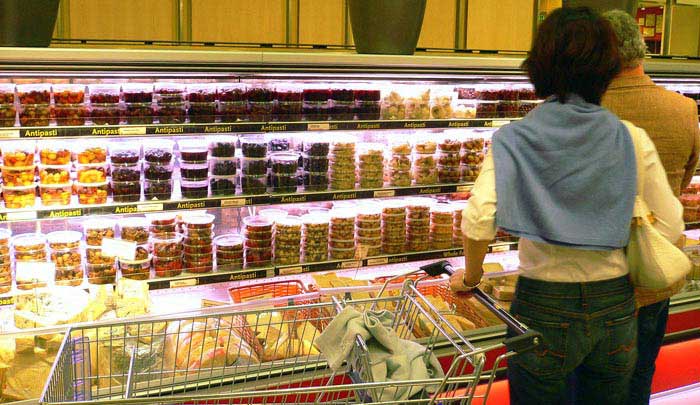Giant Amazon acquired Whole Foods and, subsequently changed the world of everyone in the business of selling, supplying or hauling groceries.
With its $13.7 billion purchase of Whole Foods, Amazon.com has become one of the major players in the U.S. grocery industry. The move could also turn into profits for food manufacturers, other supermarket chains such as the nation's largest by market share, Kroger, and for the biggest seller of groceries in the U.S. which is Walmart. The online seller getting into the world of groceries could also create a challenge for companies that deliver groceries, including Fresh Direct and Peapod.
Once Amazon is a player in the industry, anything can go, said Joe Agnese, senior food retailing analyst at CFRA. The big threat is what else they can do. Now that they have a retail presence with (more than) 400 stores, long-term they can expand on that threat. They can (bring) pricing pressure. They could bring down prices and everyone would have to match them or lose share.
Over the years, Amazon has explored new markets and introduced online shopping to new areas of business such as books, electronics, clothes and household items. Amazon has changed the world of retail by offering the opportunity to customers of buying these products online for less money and then getting delivered them to their doors. As online shopping is more efficiently than buying from a bricks-and-mortar shop, Amazon entering these areas of businesses meant the demise of smaller shops as well as big household names.
The Amazon.com empire doesn't end in the acquisition of Whole Foods. I don't think that this will be the last of Amazon's purchases, said Rafael Romero, vice president of Florida-based real estate firm CREC's retail division. They fully recognize that brick and mortar and online retailing is all retailing and you need both.
Amazon's success in every retail industry is thanks to their research of the market and adaptation to the market. Thanks to Amazon's expertise in crunching customer data, they are ready to attract new markets. Amazon also means the future as the new generations are more used to shopping online, and Amazon is already a giant in this area. The new generations are used to using their smartphones and with a few taps on their phone they buy something they want.
I think it's a great idea, Trish Wichmann of New York said about Amazon's reputation for speedy service. (Consumers are) used to texting. We're used to instant gratification. That's what we want. I think industries are trying to do that.
Thanks to Amazon's ability to crunch the numbers, they know what customers want and they are ready to offer it to them. That is why the big food stores that haven't adapted themselves to the new day and age, or they haven't done market research, are catching on. Amazon knows how to use technology to target its customers. For instance, they pay attention to a customer's shopping history and they use that make suggestions for new purchases. This way they keep their customers shopping while Amazon grows and grows.
Amazon is smart about mining data. They own data like Saudi Arabia has crude oil. Data is going to become only more (important) for those in grocery store business, said Mark Hamrick, senior economic analyst at Bankrate.com.
As Amazon continues to grow and has already create its own brand, food manufacturers and producers have to catch up as well unless they don't want to be swallowed by the giant online seller.
If Amazon does indeed get to monopolize this area of businesses, they will also be able to control the price of it. There would be no competition so they will have immense power. If Amazon is able to gain the kind of scale they want in this space, they'll be very tough in commanding a price, Hamrick said.
If Amazon cuts Whole Foods' high prices - which is likely to do - mass retailers now selling groceries as well as supermarkets need to gear up and become more competitive in order to keep their customers.
With new competition entering the market, Walmart's era might be over. For almost three decades, Walmart has been the biggest threat to the supermarket industry and ever since the chain began to add profitable clothing, it has also been competing up against clothing retailers. Apart from Amazon entering the market, Germany's Lidl and Aldi have entered the market and with their varied products and low prices, they have created an extremely competitive environment. Times are changing and traditional businesses have to gear up in order to survive.

